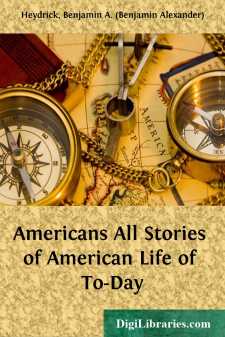Categories
- Antiques & Collectibles 13
- Architecture 36
- Art 48
- Bibles 22
- Biography & Autobiography 813
- Body, Mind & Spirit 142
- Business & Economics 28
- Children's Books 14
- Children's Fiction 11
- Computers 4
- Cooking 94
- Crafts & Hobbies 4
- Drama 346
- Education 46
- Family & Relationships 57
- Fiction 11829
- Games 19
- Gardening 17
- Health & Fitness 34
- History 1377
- House & Home 1
- Humor 147
- Juvenile Fiction 1873
- Juvenile Nonfiction 202
- Language Arts & Disciplines 88
- Law 16
- Literary Collections 686
- Literary Criticism 179
- Mathematics 13
- Medical 41
- Music 40
- Nature 179
- Non-Classifiable 1768
- Performing Arts 7
- Periodicals 1453
- Philosophy 64
- Photography 2
- Poetry 896
- Political Science 203
- Psychology 42
- Reference 154
- Religion 513
- Science 126
- Self-Help 84
- Social Science 81
- Sports & Recreation 34
- Study Aids 3
- Technology & Engineering 59
- Transportation 23
- Travel 463
- True Crime 29
Americans All Stories of American Life of To-Day
Categories:
Description:
Excerpt
ACKNOWLEDGEMENTS
For permission to reprint the stories in this volume, acknowledgement is made to the owners of the copyrights, as follows:
For "The Right Promethean Fire," to Mrs. Atwood, R. Martin and Doubleday, Page & Company.
For "The Land of Heart's Desire," to Messrs. Doubleday, Page & Company.
For "The Tenor," to Alice I. Bunner and to Charles Scribners' Sons.
For "The Passing of Priscilla Winthrop," to William Allen White and The Macmillan Company.
For "The Gift of the Magi," to Messrs. Doubleday, Page & Company.
For "The Gold Brick," copyright 1910, to Brand Whitlock and to The Bobbs, Merrill Company.
For "His Mother's Son," to Edna Ferber and the Frederick A. Stokes Company.
For "Bitter-Sweet," to Fannie Hurst and Harper & Brothers.
For "The Riverman," to Stewart Edward White and Doubleday, Page & Company.
For "Flint and Fire," to Dorothy Canfield Fisher and Messrs. Henry Holt & Company.
For "The Ordeal at Mt. Hope," to Mrs. Alice Dunbar, Mrs. Mathilde Dunbar, and Messrs. Dodd, Mead & Company.
For "Israel Drake," to Katherine Mayo and Messrs. Houghton Mifflin Company.
For "The Struggles and Triumph of Isidro," to James M. Hopper.
For "The Citizen," to James F. Dwyer and the Paget Literary Agency.
In the years before the war, when we had more time for light pursuits, a favorite sport of reviewers was to hunt for the Great American Novel. They gave tongue here and there, and pursued the quarry with great excitement in various directions, now north, now south, now west, and the inevitable disappointment at the end of the chase never deterred them from starting off on a fresh scent next day. But in spite of all the frenzied pursuit, the game sought, the Great American Novel, was never captured. Will it ever be captured? The thing they sought was a book that would be so broad, so typical, so true that it would stand as the adequate expression in fiction of American life. Did these tireless hunters ever stop to ask themselves, what is the Great French Novel? what is the Great English Novel? And if neither of these nations has produced a single book which embodies their national life, why should we expect that our life, so much more diverse in its elements, so multifarious in its aspects, could ever be summed up within the covers of a single book?
Yet while the critics continued their hopeless hunt, there was growing up in this country a form of fiction which gave promise of some day achieving the task that this never-to-be written novel should accomplish. This form was the short story. It was the work of many hands, in many places. Each writer studied closely a certain locality, and transcribed faithfully what he saw. Thus the New England village, the western ranch, the southern plantation, all had their chroniclers. Nor was it only various localities that we saw in these one-reel pictures; they dealt with typical occupations, there were stories of travelling salesmen, stories of lumbermen, stories of politicians, stories of the stage, stories of school and college days. If it were possible to bring together in a single volume a group of these, each one reflecting faithfully one facet of our many-sided life, would not such a book be a truer picture of America than any single novel could present?
The present volume is an attempt to do this. That it is only an attempt, that it does not cover the whole field of our national life, no one realizes better than the compiler. The title Americans All signifies that the characters in the book are all Americans, not that they are all of the Americans.
This book then differs in its purpose from other collections of short stories. It does not aim to present the world's best short stories, nor to illustrate the development of the form from Roman times to our own day, nor to show how the technique of Poe differs from that of Irving: its purpose is none of these things, but rather to use the short story as a means of interpreting American life. Our country is so vast that few of us know more than a small corner of it, and even in that corner we do not know all our fellow-citizens; differences of color, of race, of creed, of fortune, keep us in separate strata. But through books we may learn to know our fellow-citizens, and the knowledge will make us better Americans....


